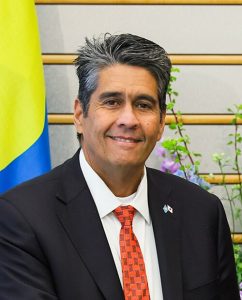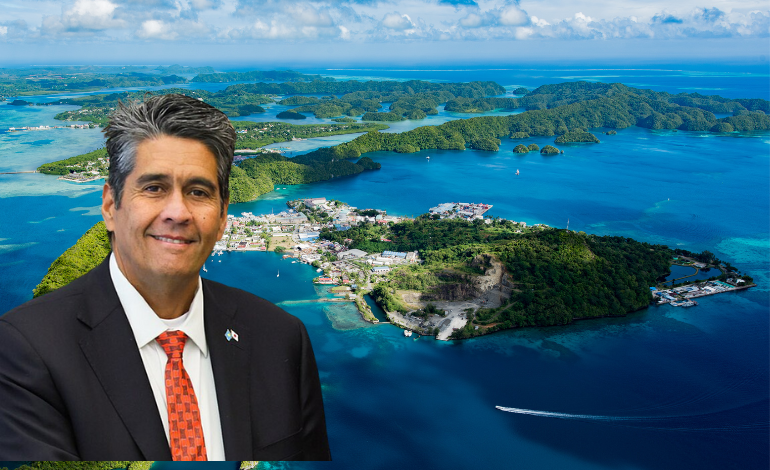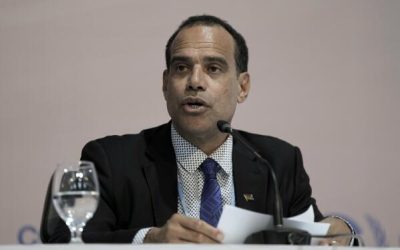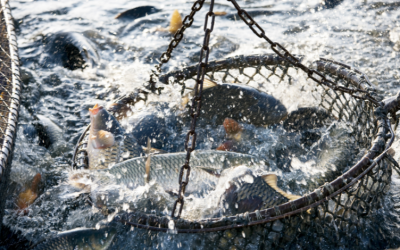Palau, an island nation of approximately 17,000 residents, has emerged as a focal point in the geopolitical contest between the United States and China. The U.S. maintains critical military infrastructure in Palau, including airstrips and radar installations, making the island strategically significant.
However, Palau faces challenges from increasing Chinese influence, marked by illegal campaign donations and land leases near U.S. military sites by Chinese nationals. Additionally, the island has seen a surge in crimes linked to Chinese individuals, including drug trafficking and human trafficking.
In response, Palauan authorities have intensified anti-corruption efforts and visa scrutiny, despite limited resources.

Palau President Surangel Whipps Jr. Photo: Wikipedia
The government has deported or denied visas to dozens of Chinese nationals involved in illicit activities.
President Surangel Whipps Jr. has reaffirmed the nation’s support for Taiwan, emphasising shared democratic values and resisting pressure from Beijing. He also highlighted the importance of U.S. military protection and called for greater climate action from Australia to protect vulnerable Pacific nations.
Palau’s strategic location in the Second Island Chain has made it a key piece in the U.S.’s efforts to curb Chinese military access in the region. The island remains caught between two superpowers, with fears rising among local communities of geopolitical escalation and social unrest.
The situation in Palau underscores the broader challenges faced by small Pacific nations navigating the complex dynamics of great power competition. As Palau continues to confront these issues, its actions may serve as a bellwether for other nations in the region grappling with similar pressures.
Increased Pacific regional engagement
Meanwhile President Whipps has been actively engaging across the Pacific to strengthen regional ties. In January 2025, he attended an Australia Pacific Islands Business Council dinner in Brisbane, where discussions with Australian government officials, business leaders, and Qantas executives focused on trade, investment, and regional connectivity, including the launch of direct flights between Australia and Palau.
He later promoted this route, the “Palau Paradise Express”, to boost tourism and people-to-people links. In April, his regional diplomacy continued with the FDC Pacific Leaders’ Address at the Lowy Institute in Sydney, highlighting climate action and sustainable development. At a Sydney renewable energy conference, he backed Australia’s bid to co-host COP31 and stressed the existential threat climate change poses to Pacific nations.
For a visual exploration of this topic, watch this video:
https://www.youtube.com/watch?v=Vc6T6XWZ1RE



